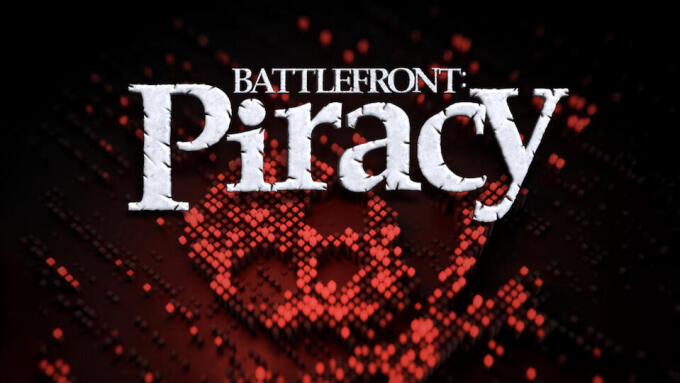LOS ANGELES — Last year saw the introduction in Congress of two new pieces of legislation: the Stop Online Piracy Act (SOPA) and the Protect IP Act (PIPA). Though billed as instituting new, more effective measures against online piracy, both became the controversial targets of well-publicized protests led by high-profile websites like Wikipedia and Google. In the wake of this debate, adult industry news media organization XBIZ asked community members: "Should governments have the power/ability to stop content piracy? (e.g. SOPA/Protect IP)"
The poll resulted in a virtual tie between respondents answering “Yes” (44.4%) and those answering “No” (45.6%). Another 10% were undecided.
Why is adult entertainment industry opinion so sharply divided on this issue? It is unlikely that those who said “no” did so out of sympathy for pirates. The industry has seen bottom lines sharply eroded due to illegal streamed content and file-sharing “cyberlockers.” Indeed, some adult entertainment companies are fighting back with litigation against BitTorrent and tube sites, while companies and organizations like Porn Guardian and the new Adult Content Industry United Foundation (ACIUF) now offer services helping to identify pirates and remove pirated content.
In other words, the adult industry is hardly “soft” on piracy — but anti-piracy lawsuits and content “takedowns” currently fall under the rules of the Digital Millennium Copyright Act (DMCA), which since 1998 has been the principal federal law in the United States pertaining to copyright infringement on the internet. Some industry professionals are clearly wary of how laws like SOPA and PIPA might change things. Groups like the Electronic Frontier Foundation maintain that SOPA and PIPA would endanger free speech, undermine online innovation, saddle websites with crushing liability costs — thus stifling investment in startups — and hand broad enforcement powers not only to the government but also to trade groups like the MPAA and RIAA. They brand SOPA and PIPA “blacklist bills,” a term likely to set off alarm bells among many in the adult world.
Decades of struggle against censorship and punitive regulation have instilled in most adult entertainment professionals a reflexive mistrust of the government as watchdog. People in the adult industry may thus be especially prone to viewing any new empowerment of government to regulate the internet as a slippery slope, despite near-universal consensus on the pressing need for some form of action against piracy. SOPA and PIPA seem to have stalled out for the moment, but it remains to be seen whether future anti-piracy bills will evoke the same skeptical response in the mainstream and adult entertainment realms.
For some involved with understanding and adjudicating the law, the time is now to implement some form of protection for property owners.
Greg Piccionelli, an industry attorney and name partner with the Westlake Village, California-based firm Piccionelli & Sarno, says Congress needs to forge new anti-piracy legislation that is "desperately needed," but that it must have a "workable balance."
"The rights at issue, copyrights, are property rights provided by our government," Piccionelli says. "For those property rights to have meaning, they must be protected and enforceable under the law. If the boundary to someone's land is not enforceable, the notion of a boundary to demarcate a person's property simply becomes meaningless, as does the concept of private property. But this country is based on the extremely important and fundamental idea that the same government that grants copyrights must be a limited government. This is why we have a constitution that sets forth what our government can and cannot do.
"The most important of the 'can't dos' are the prohibitions in the 1st Amendment, which protect us from governmental control over speech and other expression," Piccionelli adds. "The 1st Amendment is, in my book, simply the holiest of holies. It is our great sword against tyranny. Sometimes, however, the interest of protecting property, such as copyrights, and the interest of protecting freedom of expression collide. When that happens, a balance that sufficiently protects both interests is often the preferred solution to such dilemmas. But if a workable balance cannot be struck, count me in on the side of freedom.
"Appropriate anti-piracy legislation is desperately needed," he concludes. "But SOPA and PIPA are not examples of a workable balance that sufficiently protects freedom of expression. To our federal legislators, I say, "Get off your lazy asses and go back and do it right, or get out of the way and let some thinking people who are not brain-dead special interest whores do the hard work that must be done to protect both property rights and our free speech rights."
Adult industry attorney Marc J. Randazza of Las Vegas-based Randazza Legal Group notes that "intellectual property creators have a right to the fruits of their labors."
"Those who steal that from them should be stopped and made to pay," Randazza says. "Anyone who knowingly profits from intellectual property theft should be made to pay as well.
"The best way to do this would be to make a very simple law," Randazza elaborates. "One, if you knowingly profit from copyright infringement, you can be held liable for contributory copyright infringement, with statutory damages, actual damages and disgorgement of profits as a penalty. Two, if you are outside the U.S. and the plaintiff can show that they have a substantial likelihood of success on the merits of their claim, you must post a bond for recovery of reasonable damages or your website is taken down until you pay the bond. Three, you can appeal any bond determination immediately, and the site shall not be taken down during the appeal."
This XBIZ Research poll was conducted online over a two-month period. All voters were members of XBIZ.net, an online social network for adult entertainment industry professionals. Members cast their votes through XBIZ.net, and no member could vote more than once. Votes were tallied anonymously; no member could determine how another voted. Real-time poll results were made available on XBIZ.com and XBIZ.net.







